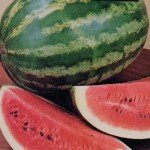 The snow is gone and warm weather is returning; it’s time to start practicing hot weather care for your backyard flock. Knowing how to prevent and treat heat stress and exhaustion is important during the hot summer months.
The snow is gone and warm weather is returning; it’s time to start practicing hot weather care for your backyard flock. Knowing how to prevent and treat heat stress and exhaustion is important during the hot summer months.
Heat stress and exhaustion is one of the top causes of chicken death. For those new to backyard chicken farming, it is important you learn to recognize the signs of this serious condition and how to keep your chickens cool and hydrated. Chicks, especially, need extra attention to help them remain healthy. For a flock of laying hens, knowing how to prevent heat exhaustion and treat a chicken suffering heat exhaustion is important to preserving their health and the health of their eggs.
Once your chicks are old enough to move outdoors, remain vigilant for signs of heat stroke, especially if it’s mid to late summer. Heat stress comes on quickly so it is important to watch them closely. Even older birds need supervision during the hot summer months.
Like dogs, chicks and grown chickens pant to keep cool—the first sign they need shade and water. With heat stress, they are open mouth panting while spreading their wings and squatting close to the ground. They are trying to lose heat by adjusting their feather position.
• Gasping and panting
• Spreading wings
• Lethargic and droopy acting
• Extremely pale cones and wattles
• Closed eyes
• Lying down
• Drop in egg production
• Reduced egg size, egg weight, and poor shell quality
• Increased thirst
• Decreased appetite
• Lost body weight
• Increased cannibalism
Laying hens are susceptible to heat exhaustion. Water is the main content of an egg. Laying eggs requires a lot of fluids so keeping your hens hydrated and comfortable is important. Egg layers also require large amounts of calcium to avoid soft eggshells. When hot, your hens may not eat as much so calcium consumption is low. Try adding small amounts of apple cider vinegar to their water 2-3 times a week. This helps to level their pH, making calcium absorption easier.
[callout title=WARNING]Never give heat stressed chickens apple cider vinegar. Only give to chickens with no signs of heat stress.
[/callout]
Tips for Keeping Your Chickens Cool
• Fresh, clean water access—I urge you not to use nipple style watering systems as the only water source, summer or winter. Chickens have a natural pecking order with those higher in the order blocking others from the water. Always have many water sources available. Use automatic waters or open pans of water. I prefer hanging the water slightly above the ground when possible to avoid dirt and debris from dirtying the water.
• Cool the water down—Add ice cubes or blocks of ice to their water. This helps lower their body temperature. We use empty, gallon milk jugs for blocks of ice. These help cool the water for several hours.
 • Fruit cubes—Besides placing blocks of ice in their water, we place strawberries and red grapes in ice cube trays, fill with water, and freeze. We then pour the ice cubes in their water pan. They love pecking at the colorful cubes at they float in the water.
• Fruit cubes—Besides placing blocks of ice in their water, we place strawberries and red grapes in ice cube trays, fill with water, and freeze. We then pour the ice cubes in their water pan. They love pecking at the colorful cubes at they float in the water.
• Watermelon—Our chickens love watermelon. During the hot part of the summer, I buy them a watermelon once a week. Watermelon is mostly water so it goes a long way to keep them hydrated.

• Get a mister—For between $15 and $20, you can get a cobra water mister. Just set around your pen and the wind will carry a fine, cooling mist over your birds.
• With the Oklahoma heat topping 100+ degrees for several weeks at a time, we invested in a large, high velocity fan. We connect an extension cord then place the fan under a nearby tree and point toward the chicken pen. Several of our chickens lay as close to the fan as possible, letting the air ruffle their feathers. Try positioning it so the air blows across your frozen water jugs.
• Since our night temperatures aren’t much cooler than daytime, usually averaging 80° F, we place frozen water jugs in the chicken coop. We use 4-5 frozen jugs, and the hens like to lay close to them. We usually place them close to the roost and nesting boxes.
• Feeding—As with people, chickens need a lighter diet during the summer months to help preserve a lower body temperature. Never feed your chicken scratch grains as just the act of digesting scratch increases body temperature. Their diet should consist of lots of fresh greens, fruits and vegetables.
• Water is not enough—Providing water is not enough if your chickens are heat stressed. Water intensifies the problem by stimulating the loss of electrolytes: birds drink more increasing wet droppings which causes electrolyte loss and hastens dehydration. You must include a balanced electrolyte solution by supplying homemade electrolytes or Pedialyte or Gatorade with their water.
Electrolyte Solution Found in The Chicken Encyclopedia: ½ teaspoon salt substitute 1 teaspoon baking soda 1 teaspoon table salt 1 tablespoon sugar 1 gallon water
Note: Find salt substitute in the spice aisle of most grocery stores.
Give the electrolyte solution for four to six hours each day for a week. Do not give to chickens that are not showing signs of heat stress.
Find this recipe and instructions in The Chicken Encyclopedia by Gail Damerow. I strongly urge all backyard chicken farmers to add this book to their library. Gail discusses heat stress as well as giving her readers lots of useful information for raising chickens.
[callout title=Tip]If you live in a hot climate, buy heat tolerant breeds. The same goes for people living with harsh winters, try keeping cold tolerant birds.
[/callout]
[ultimatetables 1 /]
Visit The “Chick” Boutique.
